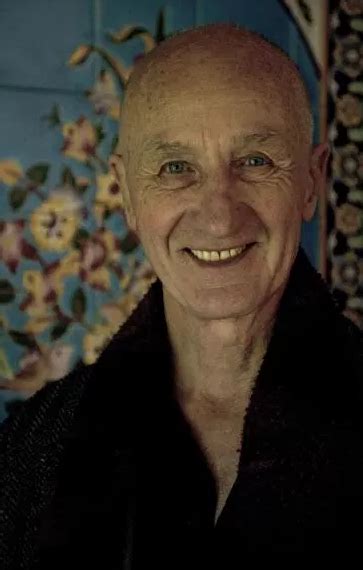Top 54 Quotes & Sayings by Roger Housden
Explore popular quotes and sayings by an author Roger Housden.
Last updated on April 14, 2025.
The ego, as our familiar sense of self, seems predicated on fear. The fear that we might not make it, that we might not get where we want to go. But deep down there is also a grain of fear that we have nothing to give or nothing to offer. I think that's the ego's justifiable anxiety about its substantiality and existence.
When we fall utterly, something gathers us up. But our falling must be without reservation, without expectation, without hope, though not hopeless. You cant plan that kind of falling. When you abandon yourself utterly to life, the river will flow, and the log jam will free. Impossible is another word for grace. Who wouldve thought it, life takes another turn, and you are gathered up into a whole different way of seeing and being.
This question of love begins and ends with the willingness to be welcoming to one's own experience as a loving action towards oneself. It may be dark, it may be light, it may be joyous, it may be sorrowful, but it's your experience, and therefore, your life. As we have that kind of loving response towards our own life, then life itself in terms of the outside world, begins to feel different.
I woke up early one morning a couple of years ago and felt the tenderness of my being alone, the bitter sweetness of it. It has many colors, being alone. I walked out into my living room and I can say honestly that everything was pouring with life - the red sofa, the chairs with their patterns of roses, even the coffee table with its scattering of books. Everything was alive with the presence of being. Seeing the world though those eyes, I realized that I could never really be alone.
Struggle has a natural place in our life, but the fight or flight syndrome is often false struggle. There are times for that but we can have that reaction in areas of our life where it's not successful. Areas that concern existential issues or qualities of life - like meaning or purpose or love. These things actually come to us more as we let go of struggling to achieve them.
The great French Impressionist painter Renoir, right at the end of his very long life, said to a friend, "I am just now learning to paint." Renoir carried his gift with a humility which realized how much he still had to learn. Anyone who goes deeply into a field in life and realizes this, gains a sense of proportion that can only make you humble.
I bring my attention to my hands on the steering wheel and notice how the chatter in my mind begins to fall away as my breathing slows. I'm awake and alive, simply driving the car going where I need to go, on time and in time. A still point of the turning world. With that awareness, I bring my attention into my body, and the body is the doorway to the timeless, because the body is always where we are and always in the present moment.
In today's world it is deceptively easy to lose sight of our direction and the things that matter and give us joy. How quickly the days can slip by, the years all gone, and we, at the end of our lives, mourning the life we dreamed of but never lived. Poetry urges us to stand once and for all, and now, in the heart of our own life.



















